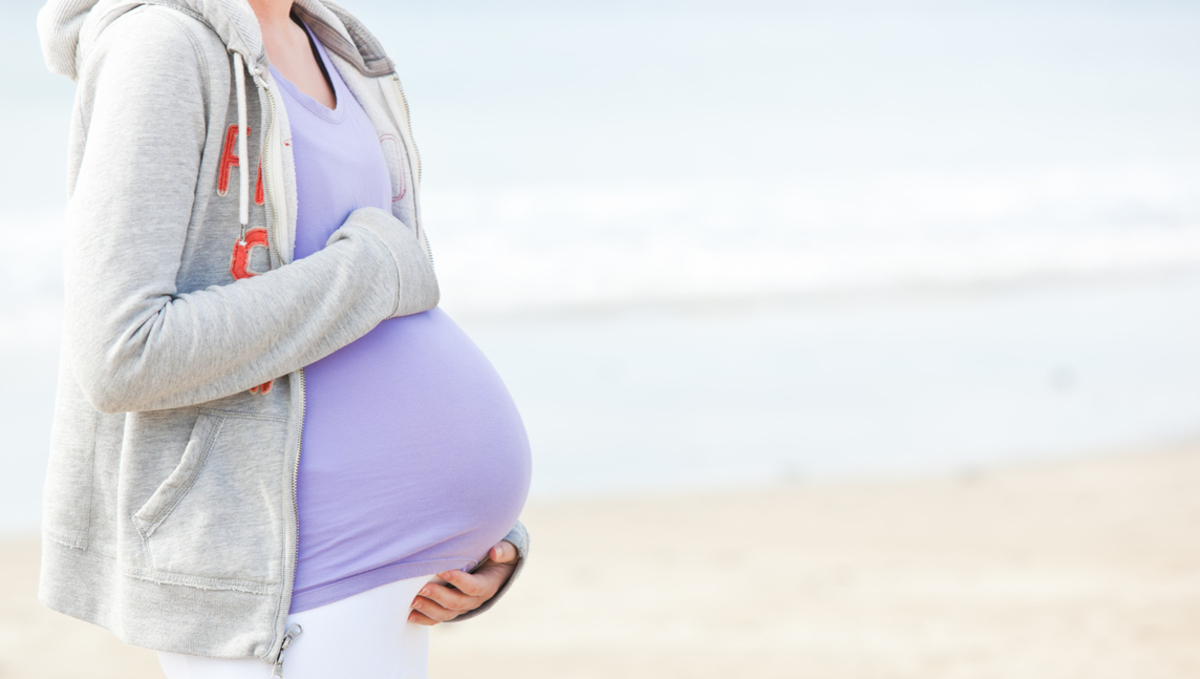It is not uncommon for pregnant women to experience a rise in their cholesterol levels. However, things are a bit more complicated when it comes to pregnant women, diets, and cholesterol-lowering medication, because expectant mothers form a special category of people with limited drug choices. That’s because so many factors can influence the growth and proper development of the fetus, it’s hard to stay on track of what’s right and wrong.

1. Why cholesterol levels rise during pregnancy
First off, it’s important to understand that it’s normal for cholesterol levels to rise during pregnancy. In the second and third trimester, they can be 25 to 50 percent higher than normal. That’s because cholesterol plays an important part in the functioning of progesterone and estrogen, hormones that are crucial for a healthy pregnancy.
Cholesterol is also something the baby needs to develop normally. Without proper cholesterol levels, the baby’s brain, cell development, and limbs may not grow as intended. Even more, cholesterol is also present in healthy breast milk.
2. Avoid medication
Taking medication for lowering cholesterol during pregnancy is the talk of the town. Some women might actually have high cholesterol levels before they get pregnant, and might already be on some medication that helps lower cholesterol. A natural question arises: Should I still take cholesterol-lowering meds if I’m pregnant?
A healthy woman has a cholesterol level of about 170 mg/dL before getting pregnant, with a rise to a level of 200 in the early pregnancy states. However, later in the pregnancy, these levels can rise to a 250 mg/dL. Doctors suggest that the cause for concern is cholesterol that exceeds 240 mg/dL in the third trimester.
3. Watching your diet
Through a healthy diet, you can almost always balance your cholesterol levels without the need to take any drugs during pregnancy. Everyone knows that pregnant women do have a lot of cravings, and some of them feel justified to eat whatever they want. However, everything that a woman eats during her pregnancy will indirectly feed the child as well. The developing baby will get the same nutrients as the mother does, and while a small craving every now and then doesn’t hurt, falling under the temptation of a junk-food idea is just around the corner, and should be avoided at all costs.
Instead, pregnant women should focus on a diet that:
- Contains a lot of fiber, which can easily be obtained from delicious fruits.
- Is rich in omega-3 fatty acids, which are found in fish that are sources from cold water.
- Includes a lot of healthy fats, such as those that come from avocado fruit or nuts.
- Limits the intake of saturated fats, which are responsible for increasing LDL levels.
- Avoids the consumption of too much sugar, which can cause an increase in triglyceride count.
4. Walking the extra mile
Needless to say, pregnant women should not exercise as much as a non-pregnant women. However, physical activities aren’t just good for lowering cholesterol during pregnancy, they can also keep both mother and baby healthy. Even more, being sedentary during pregnancy can lead to the mother gaining more weight than needed, which is difficult to get rid of after the baby is born. Extra pounds during pregnancy are perfectly normal, but there is such a thing as gaining too much weight, and it’s something that puts your health at risk.
It’s important for the expecting mother to talk to her doctor before exercising during the pregnancy, as some activities can tax the body more than needed. Pregnant women don’t necessarily have to jog around the park; anything like a daily walk is more than sufficient.
Note that exercising is not safe for just any pregnant woman. That’s why it’s always important to talk to your doctor beforehand. For instance, women that have cervical insufficiency, are pregnant with twins or triplets, have gestational hypertension or anemia, should avoid any physical activities before giving birth.
Here are some exercising ideas that should be totally safe during pregnancy:
- Swimming has always been linked to a number of health benefits. No, you won’t sink like a rock, because water can support the weight of the baby. Swimming is also good for your joints and muscles (which are bound to suffer during pregnancy), but can also keep your heart healthy.
- Yoga and Pilates classes are a hit among pregnant women. Inform the instructor of your pregnancy, and they will know exactly which poses must be avoided, and which are the best ones to try.
- Stationary bikes are preferred to regular bikes, because there are fewer chances of your falling off and hurting yourself and the baby.
5. Ditch the stress
Women can often end up being stressed during pregnancy, and this can affect the growing baby in a number of different ways. For example, stress can cause you to eat more than what your body requires for nutrition, which in turn leads to high cholesterol.
During periods of stress, the body works to produce more energy, which works up the liver, leading it to releasing more cholesterol in the bloodstream. Because of that, you should do whatever it takes to stay happy and positive during your pregnancy.
Conclusion
Managing high cholesterol during pregnancy can be a bit problematic, since you are not allowed to take any of the common meds that are normally prescribed to people who need to lower their cholesterol levels. A healthy diet and physical exercise become even more important, as well as managing stress and avoiding anxiety. Understand that your cholesterol levels will rise, and it’s your job to keep them under control, for your safety and the well-being of your future baby.

